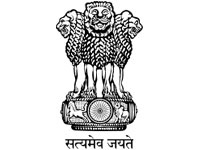-
Kamakshi S
03rd Dec 2012
Of the many words we associate with the Internet, "freedom" is one of the more obvious ones. That's been changing fast worldwide, with China as probably the best example. But do we Indians, especially those of us who are vocal about our political or religious views, have reason to worry? Does the law actually allow for a citizen to be arrested based on something he/she said online, perhaps casually, perhaps under a nickname? Is it really that easy for political hooligans to bully us and gag us online? We spoke to a legal expert, Advocate Aniket Nikam, to find out what our laws currently allow. If you are the outspoken kind, do read this article in full — it could concern your staying out of jail! First, a bit of background:
Being in a democracy, we have some fundamental rights, one of which is the right to freedom — including freedom of speech and expression. But with great power comes great responsibility, so there is always the danger of getting carried away (or being taken too seriously — but that's a different discussion). This right, too, is and was never absolute. There have always been laws to ensure that the right to freedom does not lead to slander, indecency, and more.
What's more recent, and in mainstream news, is an inclusion under the Information Technology Act – 2000, called Section 66A. The Section was added as recently as in 2008. It is under Section 66A that the Palghar police arrested two girls for a supposedly incendiary Facebook post.
Freedom Of Speech Always Has Limits
While there is national furore surrounding the recent "Facebook arrest," as it were, we must step back and note that the constitutional freedom of speech has never been absolute. Section 499 (defamation) and section 500 (punishment for defamation) of the Indian Penal Code (IPC) have always existed.The chapter of the IPC relating to defamation is considered draconian: It was laid down by the British to curb public uproar in India. But it has survived for more than a century and a half, because it lays down very clear guidelines as to what is considered slanderous and what is not.
In what is a stark contrast and a sad irony, Section 66A (which is just four years old!) of the IT Act is very ambiguous in comparison.
Advocate Aniket Nikam, whose professional credits include having represented the Indian Army as its Chief Counsel before the judicial commission in the Adarsh Society scam, elaborates: "If you read Section 66A, you will realise that it is very vague. There are lot of loopholes in the section itself. Any person can twist it for his own benefit against another's. It lays down a very subjective test, so it would depend on the investigating officer to decide what would amount to a contentious act, or what would hurt religious sentiments.
"It does not lay down the categories or instances where it can be invoked, so it leaves a lot of room for misuse and misapplication — which happened recently in the Palghar case".
The contrast here is between defamation in general and defamation on the Internet. In our country, the rules pertaining to defamation on the Internet leave less room for argument! As Nikam says, "Sections 499 and 500 of the IPC lay down instances and defences: If you said something in good faith or believed something to be true, then it cannot be called an act of defamation. However, it is not so carved out in section 66A: It doesn't specify any exceptions".
Reading Between The Lines
Section 66A, vague as it is, was appended to the IT Act in 2008 — by which time the ways of the Internet should have been understood by our lawmakers. As a result, we have to wonder about the judicial health of the country. Section 84B of the Act, which talks about abetment of offences, is equally vague.This means that a mere Like, Share, or retweet can make you party to a crime.
Those who codified the law, Nikam says, "should have foreseen the repercussions of a vaguely-worded section. It is very unfortunate that our parliamentarians did not envisage the misuse or misapplication of these provisions".
Not For Political Hooligans Alone
Can anybody accuse anyone else of abusing free speech online? Yes. Will the police take action every time? It depends on them.Nikam states, "Under this section, you can lodge a complaint with the police saying that a particular person said something offensive, and ask them to initiate proceedings and take cognizance for it. It is then for the police to decide whether to take action or not. In the Palghar case, there was a lot of political pressure, and the backdrop was such that the police moved to take action."
But what constitutes offensive speech online? There is a guideline regarding this, but it leaves room for subjective judgment. Nikam says that in the Palghar case, the police "thought that whatever was posted by the two girls was of an incendiary nature, and was likely to cause anger. They thought they should initiate action under 66A, but they overreached it. The words used in the statement were not such that it would amount to any kind of anger. If you see the guideline, it says, it should anger a reasonable person, not a person who is hypersensitive".
Punitive Actions: Are They Corrective Or Damaging?
Offences committed under the IT Act are cognizable, meaning that any person booked can be arrested without a warrant. Moreover, there is no scope for a monetary penalty: Prison it'll have to be, for a maximum of three years. In reference to the recent incidents in Palghar, should such a trivial offence attract such heavily punitive actions?Nikam suggests, "Attaching penal consequences to offences is always going to worsen the situation. For instance, if I lodge an FIR against a Mr X, saying he tweeted this and it will affect public harmony, the police can put him behind bars. The only defence available here is to apply for an anticipatory bail, and Mr X can go for squashing on an FIR lodged against him. It may be proved right or wrong in the future, but the stigma will always be attached."
Outside of the IT Act, the law is more reasonable. Nikam says, "Section 499 [which deals with defamation] is different. If something is true, if something is said in good faith, etc., unwanted arrests can be averted".
With the Supreme Court now questioning the legality of the Section, we'll just have to keep watching how many more victims Section 66A will claim — before being fixed for good.
Beware Of What You Post: Political Hooligans Are Reading! | TechTree.com
Beware Of What You Post: Political Hooligans Are Reading!
Just how far does Section 66A of the IT Act curb your freedom of speech on the internet?
News Corner
- DRIFE Begins Operations in Namma Bengaluru
- Sevenaire launches ‘NEPTUNE’ – 24W Portable Speaker with RGB LED Lights
- Inbase launches ‘Urban Q1 Pro’ TWS Earbuds with Smart Touch control in India
- Airtel announces Rs 6000 cashback on purchase of smartphones from leading brands
- 78% of Indians are saving to spend during the festive season and 72% will splurge on gadgets & electronics
- 5 Tips For Buying A TV This Festive Season
- Facebook launches its largest creator education program in India
- 5 educational tech toys for young and aspiring engineers
- Mid-range smartphones emerge as customer favourites this festive season, reveals Amazon survey
- COLORFUL Launches Onebot M24A1 AIO PC for Professionals







Reader Comments (11)